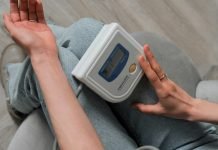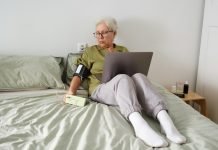
A recent study published in the journal Hypertension reveals that regular daytime napping might be linked to a higher risk of high blood pressure and stroke.
This research is the first to utilize both long-term observational analysis and Mendelian randomization—a method of genetic risk validation—to investigate this relationship.
The study was based on information from the UK Biobank, a vast biomedical database containing genetic, lifestyle, and health information from half a million UK participants aged between 40 and 69.
According to the research, frequent nappers had a 12% higher likelihood of developing high blood pressure and a 24% higher chance of experiencing a stroke compared to those who reported never taking a nap.
The risk was especially elevated among participants younger than 60, where frequent nappers had a 20% higher risk of developing high blood pressure. After age 60, the risk was 10% higher.
Details of the Study
The study, led by Professor E Wang from Xiangya Hospital Central South University, examined approximately 360,000 participants.
The researchers divided the participants into groups based on self-reported napping frequency: “never/rarely,” “sometimes,” or “usually.”
Those who frequently napped were more likely to be men, have lower education and income levels, and reported cigarette smoking, daily drinking, insomnia, snoring, and being a “night owl” compared to those who rarely or never napped.
The genetic risk analysis further showed a 40% increase in high blood pressure risk when napping frequency increased by one category.
There appeared to be a link between a higher propensity for napping and a genetic propensity for high blood pressure risk.
Insights from the Researchers
“This may be because, although taking a nap itself is not harmful, many people who take naps may do so because of poor sleep at night.
Poor sleep at night is associated with poorer health, and naps are not enough to make up for that,” said Michael A. Grandner, a sleep expert and co-author of the American Heart Association’s Life’s Essential 8 cardiovascular health score.
Limitations and Recommendations
The study does have several limitations. Researchers only collected data on napping frequency and not duration, so they could not determine how or whether the length of a nap affects blood pressure or stroke risks.
Moreover, the data was based on self-reported nap frequency, which may not be entirely accurate.
Additionally, the participants were primarily middle-aged and elderly people of European descent, so the findings may not apply to other demographic groups.
Lastly, the researchers have yet to discover the biological mechanism behind the effect of daytime napping on blood pressure regulation or stroke risk.
The authors recommend further exploration of the relationship between healthy sleep patterns, including daytime napping, and heart health.
If you care about high blood pressure, please read studies about a safe and more effective way to treat high blood pressure, and many people with high blood pressure may take a drug making it worse.
For more information about blood pressure, please see recent studies about added sugar in your diet linked to higher blood pressure, and results showing vitamin D could improve blood pressure in people with diabetes.
The study was published in Hypertension.
Copyright © 2023 Knowridge Science Report. All rights reserved.




